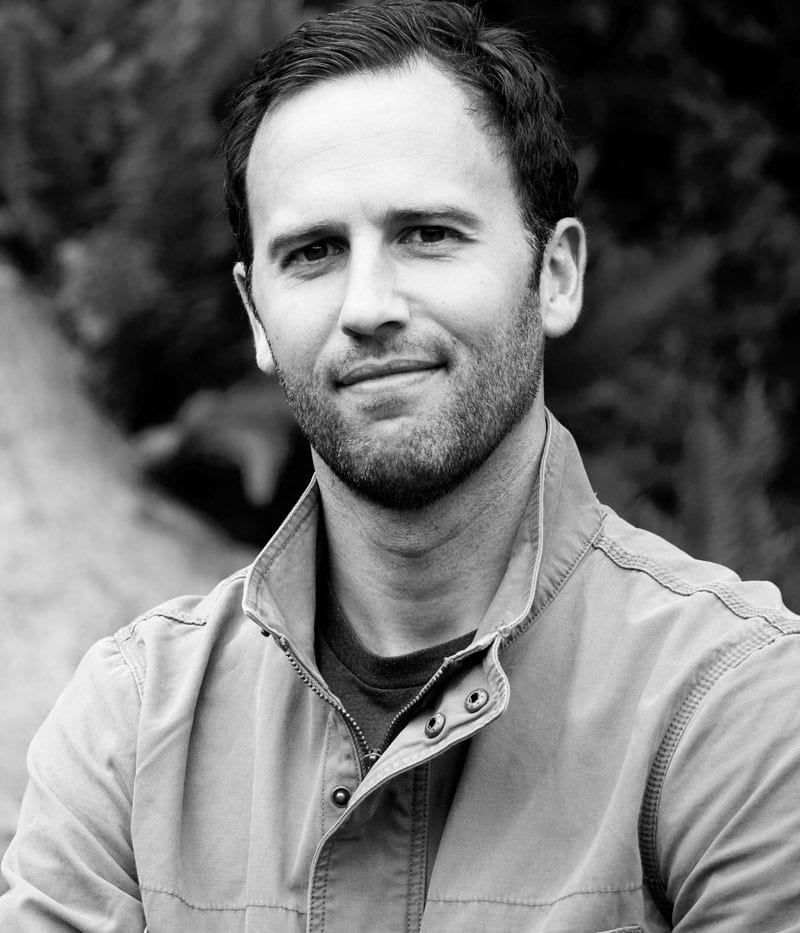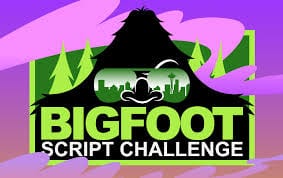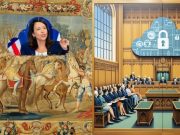
Sr. Design Storyteller
Jeremy J. Dodd might best be described as an “Envisioneer.” In the position of Sr. Design Storyteller at Microsoft and president of the Northwest Screenwriters Guild, his eyes are trained squarely on the future.
When the AI and research scientists and engineers he works with build conceptual “castles in the air,” Jeremy’s role is to furnish the interiors.
He envisions how to make the castles not just habitable, but hospitable for any number of stakeholders and end-users. His challenge is to help articulate the potential of the new technologies, the dimensions and possibilities, in narrative and visual form.
“Storytelling at Microsoft has become a sought-after discipline,” says Dodd, “just as it has for other tech companies, and those outside of tech. The role of the storyteller is fundamental to engaging people in a way that lets them care about their relationship with your product.”

Focusing on the overarching category of
artificial intelligence, Jeremy’s storytelling for Microsoft may come to life in one or more media formats. The first option may be a roadmap video — an explainer or high-level overview video, or a customer-oriented video illustrating a potential use-case that adds a vital human element to the project. Another execution may be an experience built for Microsoft’s HoloLens displaying 3D, “mixed-reality,” holographic imagery. Then there are the training and support videos for users seeking to increase their knowledge and productivity in working with tools like the Bing search engine.
“Ultimately it’s all about people,” Dodd relates. “Our users are our heroes.”
With AI, effective storytelling is able to make the abstract more tangible. There are a myriad of preconceived notions about how artificial intelligence may function in the home. But without a story or narrative to create the necessary context, the subject can spin off into the realm of science fiction and fantasy. You can’t hang on without a handle.
In one Dodd video, we are party to the more practical storyline of a husband preparing an evening meal for his wife on her way home from work. Cross-checking the various ingredients on hand in the refrigerator, an AI program formulates the number of possible recipes to put various dishes on the table. When the family dog gets to the food first, the AI program quickly pivots to a list of restaurants that offer fast home delivery.
“Our outlook for storytelling is typically around a 12-18 month horizon for any technology,” Dodd says. “We focus on what we know exists in the present time frame instead of way out into the future.”
What kind of story might a search engine like Bing convey to its constituents? Dodd’s storyline really resonates: “Bing is the largest AI product at the largest company in the world. A lot of the same technology that’s en vogue now—machine learning, neural networks, elastic computing––were the technologies Bing grew up on out of necessity because we lacked the same signal as Google 10 years ago. I think that’s pretty darn cool –– especially to us nerds.”

Leading the Northwest Screenwriter’s Guild
The same talent for translating ideas into scripted storytelling led Jeremy to his other best supporting role as president of the Northwest Screenwriters Guild and founder of the Bigfoot Script Challenge.

The Northwest Screenwriters Guild is dedicated to promoting professional screenwriting as a career by providing access to industry professionals, educational programs, and mentoring. Founded in 1992, the non-profit counts around 200 members including Compendium members who are individually approved by the NWSG board and offered additional privileges as Guild ambassadors.
“We’ve created a tribe for the screenwriting community,” says Jeremy.

Step Up to the Bigfoot Challenge

The Bigfoot Script Challenge awards up to $6,500 and access to Hollywood partners to the next great voices in Northwest screenwriting. Entrants can submit screenplays, TV pilots, and digital-only written works to be judged by top industry professionals.
Winning submissions become eligible for cash prizes, sit-downs with A-list industry professionals, and exclusive fellowships with Hollywood studios like Paramount Pictures, one of last year’s sponsors – all aimed to help bring your stories to life. This year’s competition ends in about 40 days so enter now. Challenge winners will be invited to receive their awards at the exclusive Seattle Film Summit on November 16-17, 2019.
Hollywood and the Hills of Seattle
The business landscape for screenwriters is rapidly being transformed in Hollywood where an epic battle between the Writers Guild of America (WGA) and the Association of Talent Agents (ATA) has been raging for several months.

Over the past decade, the agency business has morphed into a two-headed beast of client representation and, more recently, film and TV production via packaging fees. The latter has introduced demonstrable conflicts of interest as agencies attempt to negotiate the most lucrative deals for clients they are also, in effect, hiring.
If a screenwriter’s agent is also a producer and their profit is contingent on keeping costs down, then they have an incentive to keep writers’ salaries down, which runs contrary to their role as a writer’s representative. It is unclear how the situation will be resolved.
Jeremy notes that a major trend and an important opportunity for local screenwriters is to produce their own movies right here in the Northwest, effectively bootstrapping their projects close to home.
Unlike the days of a TV series like Northern Exposure or films like Sleepless in Seattle or The Fabulous Baker Boys being shot on location in the Puget Sound, Washington Filmworks, the Washington state film commission, is far less active in competing for Hollywood business.
“We do not see Washington state providing enough incentive for studios to bring production here,” says Dodd. “Our state budget provides $3.5M in allowances for in-state production compared to a 9-figure incentive in Vancouver, BC. Granted, our incentive is unique in that it offers dollars in your pocket, but the disparity speaks volumes.”

Give Me Shelter
Taking time to donate screenwriting time and effort in the public interest, Jeremy is also the co-creator and pro bono writer of Give Me Shelter, a series of true stories of hope written by youth who have experienced homelessness including residents of New Horizons in the Seattle area.
The project spotlights education and job-skills training to youth as a means to exit life on the streets. It is being made with major support from the Pacific Northwest’s leading film market, the Seattle Film Summit. Give Me Shelter will premiere on the 2020 film festival circuit.
What does the future of screenwriting for multiple screens hold in store? Can Jeremy envision a time when AI might actually generate screenplays?
“I can see a time when AI generates screenplays,” he says. “Just not good ones!” [24×7]





















